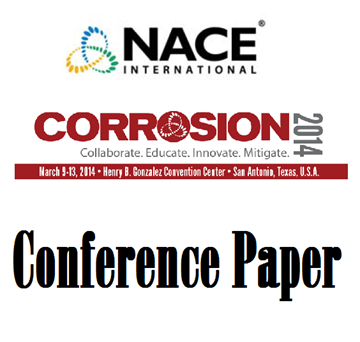Search
51314-3740-Corrosion Management and the Widening Competency Gap
Also Purchased
51314-3723-Pipeline Corrosion Management; a Compendium
Product Number:
51314-3723-SG
ISBN:
3723 2014 CP
Publication Date:
2014
$0.00
51314-3726-Corrosion Prevention and Control Training in an Immersive Virtual Environment
Product Number:
51314-3726-SG
ISBN:
3726 2014 CP
Publication Date:
2014
$0.00
Degradation of Liquid Epoxy Resins at High Temperatures
Product Number:
51314-3650-SG
ISBN:
3650 2014 CP
Publication Date:
2014
$0.00
Recently viewed




